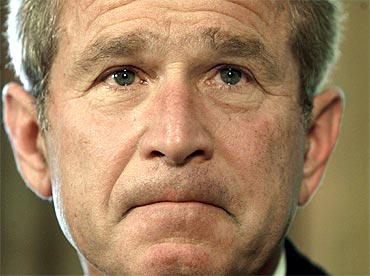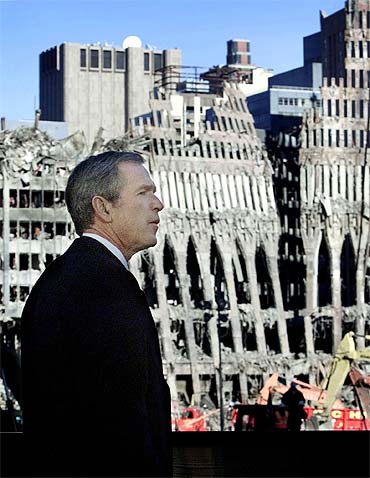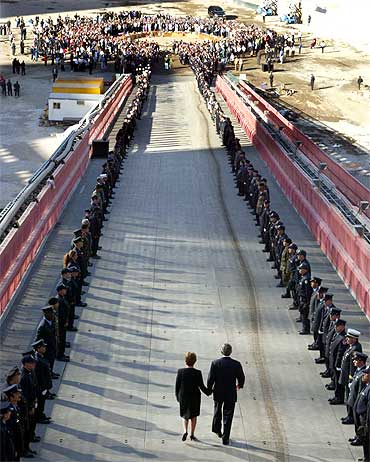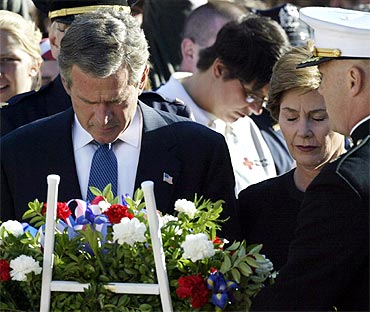 | « Back to article | Print this article |
Bush talks about the 'hell' of 9/11, Osama's death
Recalling that walking through the wreckage of the 9/11 terror strike was like "hell" for him, former United States President George W Bush has said that he felt "a sense of closure" when he learned about the killing of Osama bin Laden.
"From the air it looked like a giant scar. But when I actually got to the site, it was like walking into hell," Bush said in an interview with National Geographic Channel of his visit to Ground Zero three days after the attacks.
'September the 11th will be a day on the calendar'
Bush, who had been in office when Al Qaeda militants attacked the World Trade Center and the Pentagon, shared his experiences on September 11, 2001.
The interview will be aired on August 28, ahead of the 10th anniversary of the attacks.
"Eventually, September the 11th will be a day on the calendar; it'll be like Pearl Harbor Day," Bush said.
'It'll be a day that we will never forget'
"For those of us who lived through it, it'll be a day that we'll never forget," he added.
Bush also recalled that on 9/11, he was concerned about the safety of his wife Laura Bush and his two daughters.
"One of my concerns, like the concerns of other husbands and wives, was, 'Was my spouse okay? Was Laura okay?'" he said. "And my second concern was 'Were our girls okay?'"
'I felt a sense of closure'
On bin Laden's killing, Bush said, he "didn't feel any great sense of happiness. Or jubilation."
Bush said he was in a restaurant with his wife Laura when President Barack Obama called him before addressing the nation to say bin Laden had been killed in a raid by US Special Forces in Pakistan.
"I felt a sense of closure. And I felt a sense of gratitude that justice had been done," he said.
According to the Hollywood Reporter, Bush declined as many as 500 interview requests after bin Laden's death.
'No politics, no agenda'
The in-depth interview and candid observations by the former President illuminate his personal journey through one of the most unforgettable moments in modern American history, a press release said.
"There was no politics, no agenda as he recalled what happened that day," explains Peter Schnall, executive producer and director, who conducted the two-day interview.
"Listening to him describe how he grappled with a sense of anger and frustration, coupled with his personal mandate to lead our country through this devastating attack, was incredibly powerful," Schnall said.




